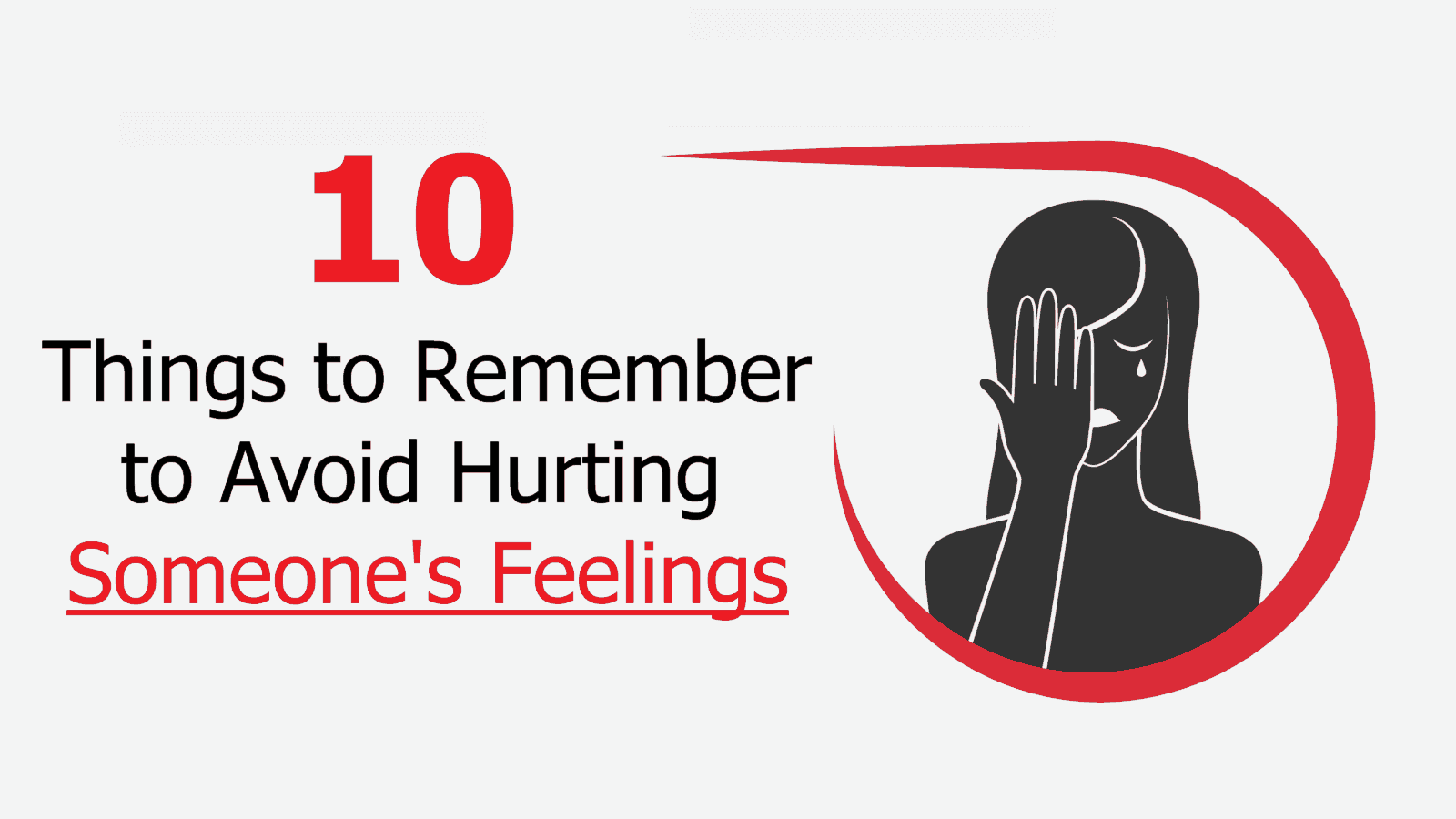Unintentionally hurting people’s feelings is often more painful for the person who did the hurting, whereas for the one who got hurt, it can be just as difficult to heal from as a physical wound. Words can hurt, but you have the power to control what you say to someone else, so read on for 10 rules to avoid causing hurt feelings.
10 Rules You Need To Remember To Not Hurt People’s Feelings
1. They are not you
Before you speak, remember that treating someone as if they should act the same as you do is unfair. They have different experiences, support systems, finances, beliefs, values and other things that make them so different from you that you cannot expect them to behave how you would in the same situation.
2. Your expectations may influence their behavior
What if what you say causes the person to completely change their opinion and do the opposite of what you think they should do? Would you be disappointed that they didn’t listen to your opinion?
3. Check your intentions
When you speak, do you intend to help, to inform, encourage, discourage, support? Or do you even know what your intent is? Most people speak with the goal of helping, but end up with the other person feeling like they were criticized. If you heard the words you are about to say to another from your own parent, would they sound patronizing? How could you best help this person?
4. Some words are just socially negative
If I called you fat and you are not fat, you can either be upset or not upset about hearing that word. Your reaction and response to my words is on you, not me. However, in general, the word ‘fat’ is not a positive or uplifting word in our society. As a test, ask yourself if the words you use are kind, joyful, or something you would say to your boss. If the answer is no, use another word or way to convey your meaning. Again, what is your intention in saying this?
5. Your perception of what hurts is not the same as theirs
You have no way to know a person’s history of pain, even if you know some of the details. Knowing your audience is good, but might not be good enough to avoid hurt feelings.

6. Avoid uncomfortable topics
Family history, health concerns, religious or spiritual beliefs, politics, and intimacy issues are all topics that have unease and emotional sensitivity associated with them. Let the other person have privacy around these topics unless they engage you first.
7. Avoid excluding people
Researchers in the Journal Behavioral and Neural Evidence say that social rejection activates the same brain region as physical pain and that even taking an over-the-counter remedy like acetaminophen can help when we have hurt feelings. Turning your bodies to keep someone out of a conversation is a great way to hurt someone’s feelings. If your discussion is not meant for them, please say that you need some time to talk with so and so alone for just a few minutes, and then you’ll be happy to include them.
8. You aren’t perfect either
No one is perfect and we all make mistakes. Do you find it enjoyable when others point out your mistakes to you?
9. Avoid talking about physical appearance
Other people are still worthy of our respect no matter their appearance. Researchers studying the causes of hurt feelings found that low self-esteem and relationship unhappiness were associated with people who reported having hurt feelings. The perceived experience of having hurt feelings was dependent on the level of intensity of the hurt feelings, their desire to avoid the person who hurt them, and their feelings about how they reacted when they were hurt.
10. Text is no substitute for voice or face-to-face
If you cannot show someone the look of concern on your face, they might be hurt by your words if they are just reading them without knowing your emotional state. If you have something to say and it could be perceived as hurtful, make sure you try to speak in person, by video, or by phone. The additional information of your voice inflection as well as your body language helps avoid hurt feelings as you convey your concern.

















